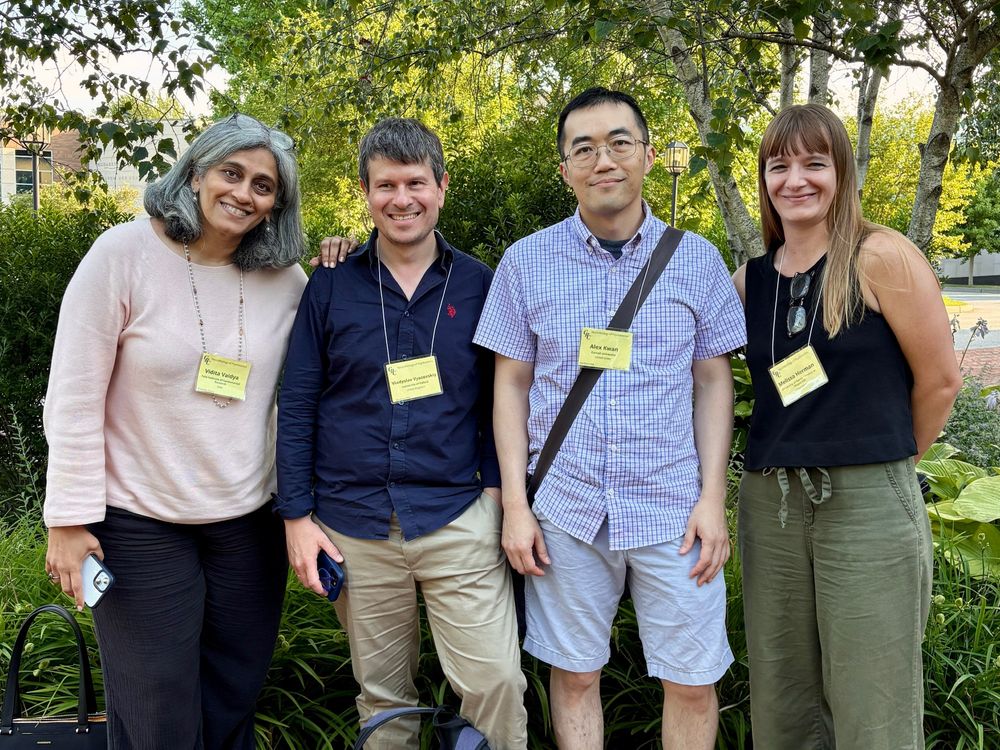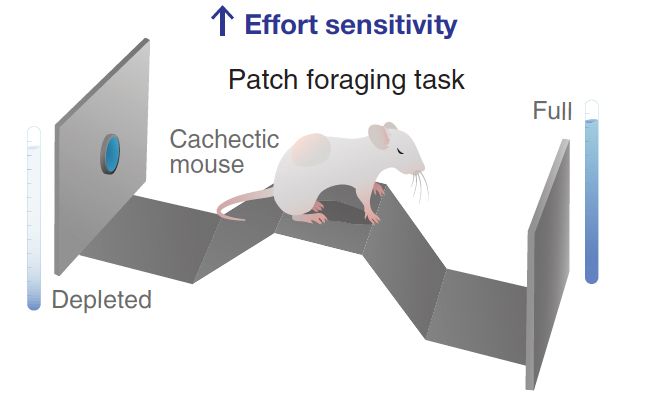The labor market may resolve the instability fast
24.02.2026 17:53 — 👍 2 🔁 0 💬 0 📌 0The labor market may resolve the instability fast
24.02.2026 17:53 — 👍 2 🔁 0 💬 0 📌 0How quickly you think we're moving toward that new equilibrium? Are what will be the leading indicators?
24.02.2026 16:52 — 👍 0 🔁 0 💬 1 📌 0or credential signal collapses and accelerates stratification because employers need cheap sorting signals (less optimistic unbundling)
24.02.2026 15:13 — 👍 0 🔁 0 💬 0 📌 0
Interesting take!
Agree AI kills homework-as-proof and take-home exams. But I don't see how that leads to optimistic unbundling. Schools could pivot to authentic assessment/competency transcripts...
My department @WashUMedNeuro is recruiting Assistant or Associate Professor of neuroscience. Join us for great science and a collegial environment! facultyopportunities.wustl.edu/Posting/Deta... Please repost.
18.02.2026 00:00 — 👍 18 🔁 7 💬 0 📌 0
Why do you say that the number of grants will be 34% below FY24?
The bill caps the *amount* NIH can obligate in FY2026 as "more than one year of a multiyear award" at the FY2025 level, and not the *number* of awards. So NIH cannot further expand this practice ie there should be MORE awards.
This is not my interpretation. What the bill language does is cap the *amount* NIH can obligate in FY2026 as "more than one year of a multiyear award" at the FY2025 level, and not the *number* of awards. Seems like they are limiting this so that there will be MORE new awards.
21.01.2026 08:17 — 👍 3 🔁 0 💬 1 📌 0
Congrats, @analog-ashley.bsky.social and Victor Magdaleno-Garcia on publishing nwb4edu in JOSE! 🎉 This interactive textbook teaches how to access, analyze, and visualize NWB data from @dandiarchive.org, w/ lessons recreating classic neuroscience figures
nwb4edu.github.io
doi.org/10.21105/jose.00309
shockingly objective take 😉
25.11.2025 22:40 — 👍 1 🔁 0 💬 0 📌 0Congrats, amazing! Well deserved, and no surprise :-)
09.10.2025 08:05 — 👍 1 🔁 0 💬 1 📌 0
Be my neighbor! @rwjms.bsky.social Neuroscience is hiring!
jobs.rutgers.edu/postings/258...
Important topic, high potency THC is a different game.
21.07.2025 18:50 — 👍 1 🔁 0 💬 0 📌 0Interesting proposal. How about editors using LLMs not to generate reviews, but to flag those that look generic and light on insight? And also use LLMs to cross-check reviews for factual errors, since some reviews can be confidently wrong.
17.07.2025 15:51 — 👍 1 🔁 0 💬 0 📌 0
Chairs and vice chairs for the Psychedelics GRC
We worked so well as a team for the #GRCPsychedelics @vyazovskiy.bsky.social @viditavaidya.bsky.social @melissaherman.bsky.social
and congrats to @theborislab.bsky.social and @mikaelpalner.bsky.social, who will be the future vice-chairs!
Meet Area Postrema!
12.05.2025 13:07 — 👍 2 🔁 0 💬 0 📌 0I will fly to anywhere in the United States on my own dime to talk to people about basic science! I encourage all of you, particularly senior scientists to make this commitment. If you are looking for material ask @karalmarshall.bsky.social She has put together an amazing basic talk!
04.05.2025 18:37 — 👍 60 🔁 16 💬 0 📌 0We'll miss you here Ilya! Exciting opportunity, congrats! Wishing you all the best for this next chapter!
05.05.2025 08:25 — 👍 1 🔁 0 💬 0 📌 0
Given all that is going on consider this quote from Bertram Russell's 1930 book The conquest of Happiness:
“The man who can be interested in the structure of atoms or the way in which a beetle navigates, is likely to get a joy in life which no amount of success in the pursuit of power can give. ”
💔 that’s really tough, so sorry
11.04.2025 22:34 — 👍 1 🔁 0 💬 1 📌 0Thanks CJ!
11.04.2025 15:46 — 👍 0 🔁 0 💬 0 📌 0
14/ Finally, this work wouldn’t have been possible without generous support from many funders. Special thanks to the NIH, especially NIMH, NIDA, and the NIH Pioneer Award—for making long-term, high-risk neuroscience like this possible.
🧵🔚
13/ This builds on decades of work linking inflammation to fatigue, depression, and motivation loss. We’re picking up that thread, now with a defined brain circuit in play, a step toward circuit neuro-immunology.
#Inflammation #Depression #IL6 #Cancer #Cachexia #NeuroImmunology
12/ This project took a *huge* team, spanning neuroscience, immunology, and cancer. Grateful to co–first authors Aelita Zhu, Sarah Starosta, co–senior authors Marco Pignatelli & Tobias Janowitz & ours labs & all our amazing collaborators including @kravitzlab.com & Pavel Osten.
11.04.2025 14:00 — 👍 4 🔁 1 💬 1 📌 011/ We’re also excited about our effort-based tasks to measure motivation. Grounded in behavioral economics, they’re designed for cross-species computational psychiatry. We’re now adapting them for humans to bridge physical disease and psychiatric symptoms.
11.04.2025 14:00 — 👍 2 🔁 0 💬 1 📌 0
10/ Our work reframes cachexia: it’s not just body wasting, it inherently involves the brain. Chronic inflammation activates a neural circuit that suppresses motivation—likely
adaptive in acute illness but harmful when chronic, showing how physical disease directly causes psychiatric symptoms.
9/ We also used an IL-6–blocking antibody in mice—similar to FDA-approved drugs for rheumatoid arthritis. Given early, it improved survival. Given late, it still rescued apathy-like behavior. This points to a promising, translatable way to treat apathy in advanced disease.
11.04.2025 14:00 — 👍 1 🔁 0 💬 1 📌 0
8/ The circuit insights let us reverse apathy without stopping cancer:
— Knockdown of IL-6 receptors in area postrema
— Ablation of ArP→PBN neurons
— Boosting dopamine via optogenetics or dopamine agonist cocktail injected in nucleus accumbens.
Motivation was rescued even in late-stage disease.

7/ We used a patch foraging task with depleting rewards designed to measure effort sensitivity—grounded in behavioral economics. As cachexia progressed and IL-6 rose, dopamine in the nucleus accumbens fell. Mice gave up faster, even when rewards were still available.
11.04.2025 14:00 — 👍 1 🔁 0 💬 1 📌 06/ We mapped fill the circuit: IL-6 activates the area postrema neurons that project parabrachial nucleus and then to substanta nigra pr, which inhibits dopamine release in the nucleus accumbens. Optogenetic activation of ArP→PBN mimicked inflammation, rapidly suppressing motivation.
11.04.2025 14:00 — 👍 1 🔁 0 💬 1 📌 05/ To find the cause, we ran a cytokine screen and brainwide cFos mapping. The cytokine IL6 increased with cachexia. Most brain regions were suppressed, but a few lit up—most notably the area postrema, a circumventricular organ outside the BBB that could sense circulating IL-6.
11.04.2025 14:00 — 👍 1 🔁 0 💬 1 📌 0